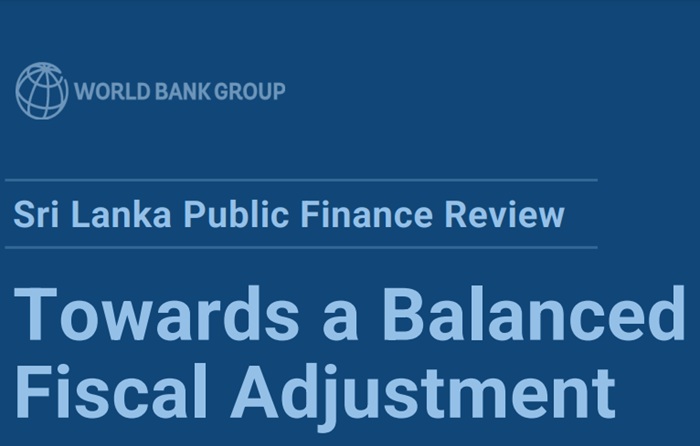
The World Bank Group says Sri Lanka’s fiscal adjustment, nearly 8 per cent of gross domestic product (GDP) since 2021, has been exceptionally large by both historical and international standards.
Releasing its latest report titled ‘Sri Lanka Public Finance Review: Towards a Balanced Fiscal Adjustment’, the World Bank said Sri Lanka has been critical in stabilizing the economy, reducing fiscal imbalances, and restoring macroeconomic stability.
With macroeconomic stability largely restored, Sri Lanka can now consider a more balanced fiscal strategy. The sharp fiscal adjustment adversely impacted households through higher indirect taxes and substantially lower real public sector wages and contributed to slower economic growth due to the decline in public investment.
Given various combinations of primary balance and real GDP growth that achieve key debt targets, Sri Lanka can consider carefully recalibrating fiscal policy to manage the trade-offs between stronger fiscal buffers and growth, equity, and sustainability, it said.
According to the World Bank Group, this public finance review (PFR) analyzes how to make Sri Lanka’s ongoing fiscal adjustment more sustainable, equitable, and growth-friendly.
The PFR finds that this balance can be achieved as Sri Lanka can (i) raise an additional 1.5-2.0 per cent of GDP in revenue by 2029 without hurting equity and growth, and (ii) improve efficiency and equity of spending within the current spending envelope, since further spending cuts or increases are not feasible.
On the revenue side, this will entail increasing reliance on direct taxes, modernizing and digitizing tax administration, and improving tax morale; and on the expenditure side, improving wage bill management, reorienting capital spending towards infrastructure gaps, and improving targeting of social assistance.
The report identifies three core areas for reform for sustainable and equitable revenue mobilization: (i) increasing reliance on direct taxes, (ii) modernizing and digitizing tax administration, and (iii) focusing on taxpayer engagement to improve tax morale.
Following is the full report of the World Bank; https://openknowledge.worldbank.org/server/api/core/bitstreams/1a1c9063-09b1-40e3-aa30-27d1e7e606a8/content (Newswire)
